
Find Help
More Items From Ergsy search
-

Can diet affect ADHD symptoms?
Relevance: 100%
-

What are the main symptoms of ADHD?
Relevance: 74%
-

Attention deficit hyperactivity disorder (ADHD) - Living with ADHD
Relevance: 68%
-

Is there a cure for ADHD?
Relevance: 66%
-
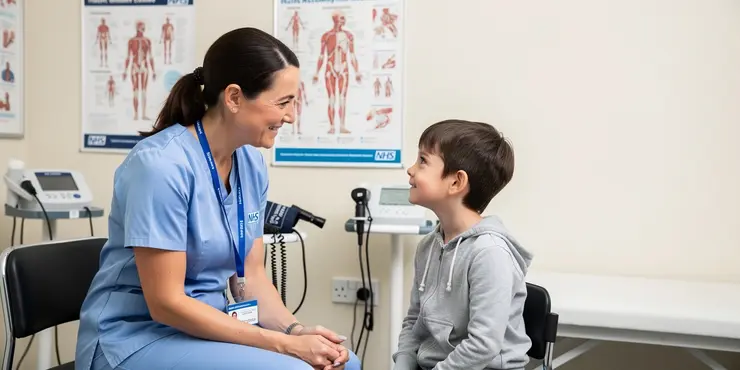
What is ADHD?
Relevance: 66%
-
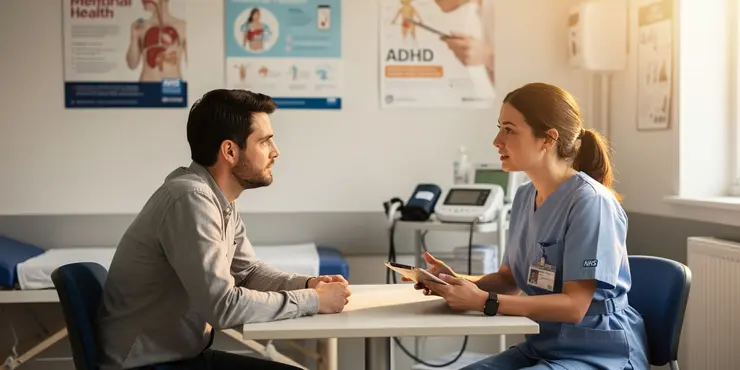
What causes ADHD?
Relevance: 64%
-
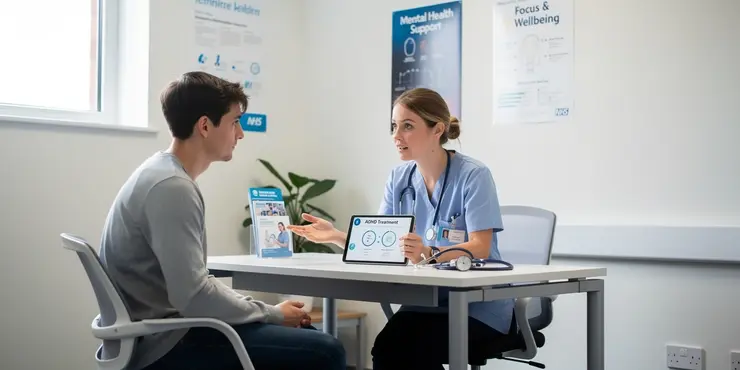
What are common treatments for ADHD?
Relevance: 63%
-

Can ADHD be inherited?
Relevance: 61%
-

Can lifestyle changes help manage ADHD?
Relevance: 61%
-

Can adults have ADHD?
Relevance: 61%
-

What role does the environment play in ADHD?
Relevance: 61%
-
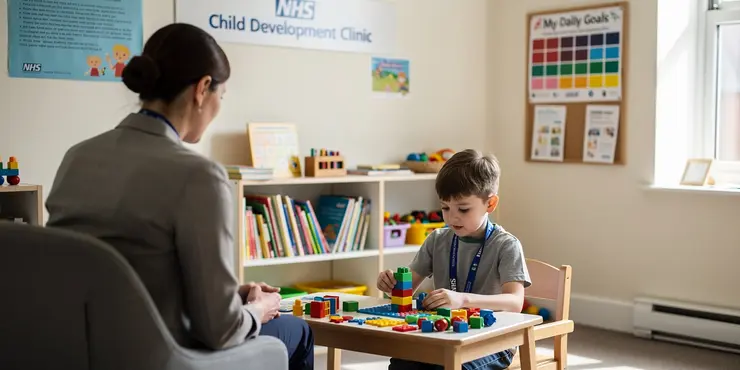
How is ADHD diagnosed?
Relevance: 60%
-

Are there different types of ADHD?
Relevance: 60%
-

Attention deficit hyperactivity disorder (ADHD) - Introduction
Relevance: 59%
-

Attention deficit hyperactivity disorder (ADHD) - Treatment
Relevance: 58%
-

Is ADHD more common in boys or girls?
Relevance: 56%
-
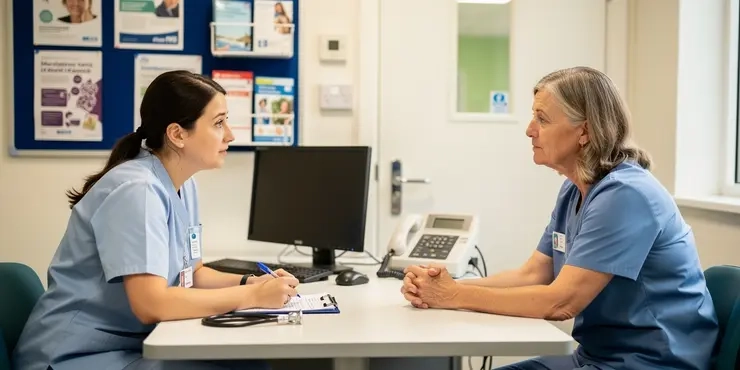
Attention deficit hyperactivity disorder (ADHD) - Diagnosis
Relevance: 56%
-
How can I get tested for ADHD?
Relevance: 55%
-

Can therapy help individuals with ADHD?
Relevance: 54%
-

Are there any risks associated with untreated ADHD?
Relevance: 53%
-
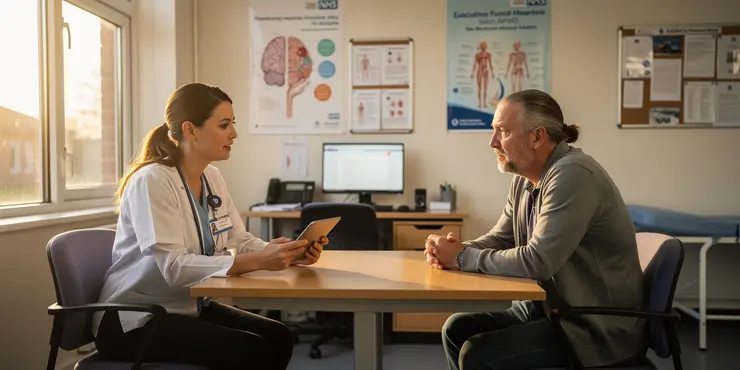
How does ADHD affect executive function?
Relevance: 50%
-

How can teachers support students with ADHD?
Relevance: 48%
-

Can diet influence hay fever symptoms?
Relevance: 47%
-
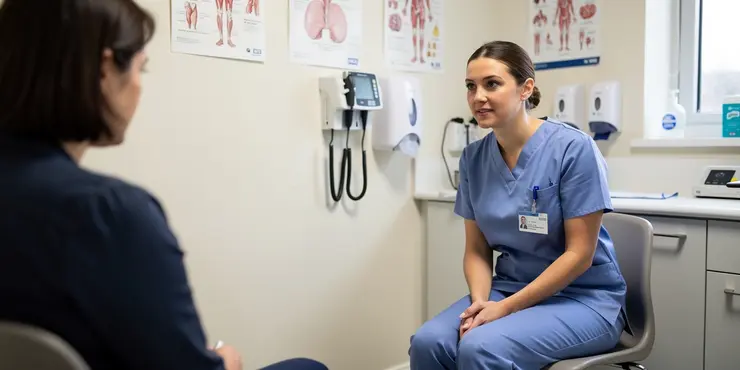
What is ADHD?
Relevance: 45%
-

Can ADHD affect academic performance?
Relevance: 38%
-

Can diet affect psoriasis?
Relevance: 37%
-

Can diet affect asthma?
Relevance: 36%
-

Can diet impact BPH?
Relevance: 36%
-

Can diet affect eczema?
Relevance: 36%
-
Can diet affect tinnitus?
Relevance: 35%
-
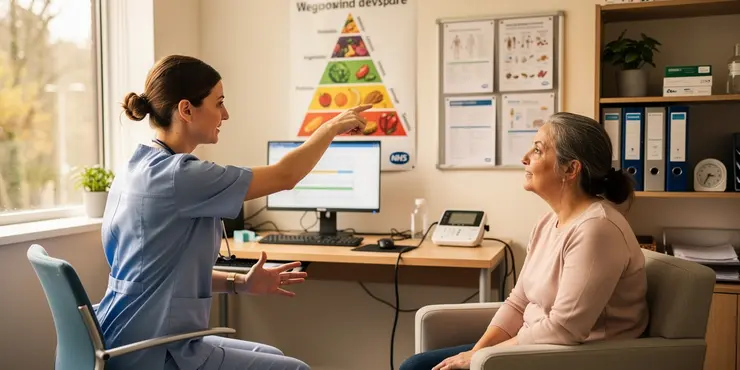
Does your diet affect IBS?
Relevance: 35%
-

Dyspraxia Symptoms & Signs
Relevance: 34%
-

What is the best diet for Crohn’s disease?
Relevance: 33%
-
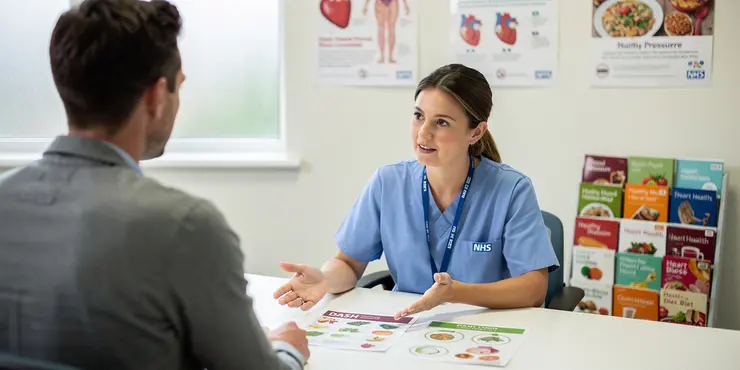
What is the DASH diet?
Relevance: 33%
-
What role does diet play in menopause masking?
Relevance: 33%
-

Can diet impact postnatal depression?
Relevance: 31%
-

What is the role of diet in managing heart failure?
Relevance: 31%
-

Coeliac Disease: The gluten free diet
Relevance: 31%
-

Understanding the Benefits of the Mediterranean Diet
Relevance: 31%
-
Can a low-fat diet be unhealthy?
Relevance: 30%
The Relationship Between Diet and ADHD
Attention Deficit Hyperactivity Disorder (ADHD) is a common neurodevelopmental condition that affects both children and adults across the UK. It is characterised by symptoms such as inattentiveness, hyperactivity, and impulsivity. Managing ADHD often involves medication and behavioural therapy, but there is growing interest in the role diet may play in influencing symptoms.
Nutritional Deficiencies and ADHD
Research suggests that certain nutritional deficiencies could exacerbate ADHD symptoms. For instance, Omega-3 fatty acids, which are found in fish oils, play an important role in brain health. Some studies have observed a link between low levels of Omega-3s and increased ADHD symptoms. Similarly, deficiencies in minerals like zinc, iron, and magnesium have been associated with behavioural issues, including those seen in ADHD.
Sugar and Food Additives
The impact of sugar intake on ADHD symptoms has been a topic of debate. Some parents and practitioners believe that high sugar consumption can lead to increased hyperactivity, though research findings are mixed. Conversely, food additives, including artificial colours and preservatives, have been more consistently linked to behavioural problems. The UK has seen movements to reduce artificial additives in children’s diets, driven by studies suggesting they might worsen ADHD symptoms.
The Role of a Balanced Diet
Maintaining a balanced diet can potentially alleviate some ADHD symptoms. Diets rich in fruits, vegetables, whole grains, and lean proteins provide essential nutrients that support overall brain function. The Mediterranean diet, known for its emphasis on whole foods and healthy fats, has been associated with improved cognitive performance and could be beneficial for those with ADHD.
Elimination Diets
Some individuals with ADHD pursue elimination diets, which involve removing potential food allergens or irritants from their diet. The idea is to identify specific foods that might trigger or worsen symptoms. Gluten, dairy, and specific food colourings are common targets in such approaches. Before embarking on an elimination diet, it is crucial to consult with healthcare professionals to ensure nutritional needs are met.
The Importance of Professional Guidance
While diet can play a supportive role in managing ADHD, it should not replace conventional treatments prescribed by healthcare providers. Parents and individuals should consult with dietitians, nutritionists, or healthcare professionals when making significant dietary changes. Such guidance can ensure that any dietary adjustments are safe and tailored to individual needs.
Conclusion
In conclusion, while there is no one-size-fits-all diet for ADHD, exploring dietary influences can be a helpful avenue for some individuals. Balancing nutrient intake, reducing potential dietary triggers, and consulting with healthcare professionals are key steps in integrating dietary strategies with overall ADHD management plans. Future research may continue to shed light on how dietary changes can complement traditional treatment approaches for ADHD in the UK and beyond.
The Link Between Diet and ADHD
ADHD stands for Attention Deficit Hyperactivity Disorder. It is a condition that many children and adults have in the UK. People with ADHD might find it hard to pay attention, sit still, or think before they act. Doctors often use medicine and therapy to help, but now people are also looking at how food might help with ADHD.
Missing Nutrients and ADHD
Some studies say that not getting enough of certain nutrients can make ADHD worse. For example, Omega-3 is a healthy oil in some fish. It helps the brain. If you don't get enough Omega-3, ADHD might get worse. Minerals like zinc, iron, and magnesium are also important. Not having enough of these can cause behavior problems like ADHD.
Sugar and Additives
Many people talk about sugar and ADHD. Some think too much sugar makes kids hyper, but the research isn't clear. However, things like artificial colors and preservatives in foods are more likely to cause behavior problems. In the UK, people are trying to use fewer artificial additives in kids' foods because they might make ADHD worse.
Eating a Balanced Diet
Eating a mix of different good foods might help with ADHD. Foods like fruits, vegetables, whole grains, and lean meats give nutrients that are good for the brain. The Mediterranean diet, which includes these foods, might help people think better and can be good for those with ADHD.
Trying Elimination Diets
Some people with ADHD try elimination diets. This means they stop eating certain foods to see which ones might be causing problems. Common foods to avoid are gluten, dairy, and some food colors. It's important to talk to a doctor before starting an elimination diet to make sure you still eat all the nutrients you need.
Getting Help from Professionals
Food can help with ADHD, but it should not replace regular treatments from doctors. Parents and people with ADHD should talk with diet experts, like dietitians or nutritionists, when changing diets. These experts can make sure the diet is safe and right for you.
Ending Thoughts
There is no special diet plan for everyone with ADHD, but food might help some people. Eating enough good nutrients, avoiding foods that cause problems, and getting help from health experts are important steps. Future research will help us learn more about how food can work with medicines to help ADHD.
Frequently Asked Questions
Can diet influence ADHD symptoms?
Yes, diet can influence ADHD symptoms, although the impact may vary among individuals.
Are there specific foods that worsen ADHD symptoms?
Some individuals report that certain foods high in sugar or additives worsen ADHD symptoms, but evidence is mixed.
Is there a diet that can help manage ADHD symptoms?
While no specific diet guarantees symptom relief, some find benefits from nutrient-rich diets like the Mediterranean diet.
Can eliminating sugar improve ADHD symptoms?
While some people believe sugar exacerbates ADHD symptoms, research does not conclusively support this claim.
Do artificial food colorings affect ADHD symptoms?
Some studies suggest artificial colorings may worsen symptoms in sensitive individuals, though more research is needed.
What role do omega-3 fatty acids play in ADHD management?
Omega-3 fatty acids might help improve symptoms as part of a balanced diet due to their beneficial effects on brain health.
Can caffeine influence ADHD symptoms?
Caffeine might have stimulant-like effects that can temporarily impact ADHD symptoms, but its overall benefit is unclear.
Does a gluten-free diet help with ADHD?
Only individuals with specific sensitivities, like celiac disease, may see improvements in symptoms on a gluten-free diet.
Can a diet rich in protein help ADHD symptoms?
Protein-rich diets may stabilize blood sugar and provide a steady source of energy, which could help manage symptoms.
Are there foods that can help boost concentration in ADHD?
Foods that release energy slowly, like complex carbohydrates, might aid concentration, though individual responses vary.
Is the Feingold Diet effective for ADHD symptoms?
The Feingold Diet eliminates certain additives and is claimed to help some children, but evidence is limited and mixed.
How can micronutrients affect ADHD symptoms?
Nutrients like zinc, magnesium, and iron play roles in brain function and could impact ADHD symptoms if deficient.
Does hydration affect ADHD symptoms?
Proper hydration supports overall health and brain function, potentially helping manage ADHD symptoms.
What is the role of balanced meals in managing ADHD?
Balanced meals ensure a steady supply of energy and necessary nutrients, possibly helping manage symptoms.
Can skipping meals affect ADHD symptoms?
Skipping meals can lead to energy dips and affect concentration, potentially exacerbating ADHD symptoms.
Can probiotics support ADHD symptom management?
Emerging research suggests gut health could influence ADHD, but more evidence is needed to confirm probiotic benefits.
Do allergies or food sensitivities exacerbate ADHD symptoms?
In some cases, managing allergies or sensitivities might improve symptoms if they contribute to behavioral changes.
How might sugar substitutes impact ADHD symptoms?
The impact of sugar substitutes on ADHD symptoms is not well-researched, though some individuals might have sensitivities.
Can meal timing influence ADHD symptoms?
Regular meal timing can help maintain steady energy levels, which might support symptom management.
Is it important to work with a professional to adjust diet for ADHD?
Yes, consulting with healthcare professionals ensures dietary changes are safe and potentially beneficial.
Can what you eat change ADHD signs?
What you eat might help with ADHD.
Here are some tips:
- Healthy eating: Try fruits, veggies, and whole grains.
- Less sugar: Too much sugar can be bad.
- Good fats: Like fish or nuts are helpful.
Talking with a doctor can also help.
Yes, what you eat can change ADHD signs, but it can be different for everyone.
Do some foods make ADHD worse?
Some people say that eating sweet foods or foods with lots of chemicals can make ADHD symptoms worse. But scientists are not sure about this.
Can food help with ADHD?
No special food plan can promise to make all symptoms go away. But, some people feel better when they eat healthy foods. One example is the Mediterranean diet.
Can cutting out sugar help with ADHD?
ADHD stands for Attention Deficit Hyperactivity Disorder. It's a condition that makes it hard to focus, sit still, or control actions.
Some people think eating less sugar might help with ADHD. But there's no strong proof yet.
If you think sugar makes you feel more jumpy or lose focus, you could try eating less sugar and see if it helps.
Other things that can help with ADHD are:
- Talking to a doctor or special helper about your feelings.
- Doing fun exercises to burn extra energy.
- Getting plenty of sleep.
- Using timers or checklists to stay on task.
Always check with a grown-up or doctor before making big changes in what you eat.
Some people think sugar makes ADHD symptoms worse, but research doesn't prove this.
Do food colors change ADHD behavior?
Can food colors make ADHD worse?
Some studies say that artificial colors might make symptoms worse for some people who are sensitive. But we need to do more research to be sure.
How do omega-3 fats help with ADHD?
Omega-3 fats are good for your brain.
They can help kids with ADHD feel better.
Some people take fish oil pills for omega-3.
Talk to your doctor to see if it's a good idea for you.
Sometimes, having the right food can help us feel calmer and more focused.
Using pictures or stories about fish can help you understand omega-3 better.
Omega-3 fatty acids are good fats that might help if you eat them with other healthy foods. They can be good for your brain.
Does caffeine affect ADHD symptoms?
Caffeine might make you feel more awake for a little while. It could change how ADHD feels, but we are not sure if it helps a lot.
Can a gluten-free diet help with ADHD?
Some people think eating a diet without gluten might help with ADHD. ADHD is a condition that makes it hard to focus or sit still.
Gluten is found in foods like bread and pasta.
It is good to talk to a doctor to see if a gluten-free diet can help you. They can give advice and support.
Using pictures or charts can also help explain this more easily.
Some people get sick from eating gluten. These people feel better when they don’t eat gluten. This group includes people with celiac disease.
Can eating lots of protein help with ADHD?
Eating foods with lots of protein can help keep your blood sugar levels steady. This can give you a stable energy supply and might help with any symptoms you have.
Can some foods help people with ADHD think better?
Some foods can help you focus better. These foods give you energy slowly, like whole grains, beans, and vegetables. But, everyone is different, so it might not work the same for everyone.
Does the Feingold Diet help with ADHD?
The Feingold Diet is a plan where you stop eating certain things added to food. Some people say this makes kids feel better. But we do not have a lot of proof that it works the same for everyone.
How do small nutrients change ADHD signs?
Small nutrients, like vitamins and minerals, help our brains work well. Some children with ADHD may feel better when they get enough of these nutrients.
Eating healthy foods can help. Foods like fruits, vegetables, and fish have lots of good nutrients. Sometimes, doctors suggest special vitamins if someone is not getting enough from food.
Using a diary to track mood and food can help see if changes happen with certain foods. Talking to a doctor or nutritionist can give good advice on what to eat.
Your brain needs certain nutrients to work well. These are zinc, magnesium, and iron. If you don't have enough of these, it may affect how your brain works and can make ADHD symptoms worse.
Does drinking water help with ADHD?
Drinking enough water can help people feel better. It might help with ADHD too. ADHD stands for Attention Deficit Hyperactivity Disorder. This means it can be hard to pay attention or sit still.
Try to drink water every day. Use a water bottle to help remember. If you find it hard, ask someone to remind you. You can also use phone reminders.
Drinking enough water is good for your whole body and your brain. It might also help you if you have ADHD.
How do balanced meals help with ADHD?
Eating balanced meals gives your body energy and important nutrients. This may help with feeling better and can help with symptoms.
Can missing meals change ADHD symptoms?
If you have ADHD, not eating meals might change how you feel. Try to eat at regular times. This can help you focus better.
Here are some tips to help:
- Use a timer or alarm to remind you to eat.
- Make a meal plan so you know what to eat each day.
- Ask a family member or friend to help you remember to eat.
If you skip meals, it can make you feel tired and find it hard to focus. This can make ADHD symptoms worse.
Can probiotics help with ADHD symptoms?
Some people wonder if taking probiotics can help with ADHD. ADHD stands for Attention Deficit Hyperactivity Disorder. It's when a person finds it hard to focus or sit still.
Probiotics are good germs that live in your gut. They can make your tummy feel better and keep you healthy.
If you want to try probiotics, you can talk to a doctor. They can tell you if it's a good idea for you.
Tools like picture cards or apps can help you remember to take probiotics or to stay focused on tasks.
New studies say that a healthy tummy might help with ADHD. But we need more proof to know if good bacteria really help.
Do allergies or certain foods make ADHD symptoms worse?
Sometimes, if allergies or sensitivities make you behave differently, you can feel better by managing them.
Do sugar substitutes change ADHD symptoms?
ADHD is a condition where it can be hard to concentrate or sit still. Some people wonder if using sugar substitutes (like sweeteners) can change these symptoms.
Kids with ADHD might have more energy and find it harder to pay attention. Some think sugar can make this worse. So, is using sugar substitutes better?
Here are some things that might help:
- Talk to a doctor: A doctor can help you understand what is good for you.
- Try one change at a time: If you swap sugar for substitutes, do it slowly to see any changes.
- Keep a diary: Write down how you feel each day to spot any differences.
Everyone is different, so it's important to find what works best for you.
We don't know a lot about how sugar substitutes affect ADHD symptoms. Some people might be sensitive to them.
Can when you eat change ADHD signs?
Eating at the right times might help people with ADHD feel better. Try to eat meals and snacks at the same time each day.
To support yourself, you can use a planner or set reminders on your phone to help remember meal times. Eating healthy foods like fruits, vegetables, and whole grains is also important.
Eating at the same times each day can help keep your energy steady. This might make it easier to handle symptoms.
Should you get help changing your diet for ADHD?
It is a good idea to talk to a doctor or nutrition expert. They know about food and can help you. Changing your meals might help with ADHD. A doctor or expert can tell you what foods are best.
You can also try keeping a food diary. Write down what you eat and how you feel. This can help you see if certain foods affect your mood or focus.
Talking to a doctor or nurse is important. They can tell you if changes to your diet are safe and good for you.
Useful Links
This website offers general information and is not a substitute for professional advice.
Always seek guidance from qualified professionals.
If you have any medical concerns or need urgent help, contact a healthcare professional or emergency services immediately.
Some of this content was generated with AI assistance. We’ve done our best to keep it accurate, helpful, and human-friendly.
- Ergsy carfully checks the information in the videos we provide here.
- Videos shown by Youtube after a video has completed, have NOT been reviewed by ERGSY.
- To view, click the arrow in centre of video.
- Most of the videos you find here will have subtitles and/or closed captions available.
- You may need to turn these on, and choose your preferred language.
- Go to the video you'd like to watch.
- If closed captions (CC) are available, settings will be visible on the bottom right of the video player.
- To turn on Captions, click settings .
- To turn off Captions, click settings again.
More Items From Ergsy search
-

Can diet affect ADHD symptoms?
Relevance: 100%
-

What are the main symptoms of ADHD?
Relevance: 74%
-

Attention deficit hyperactivity disorder (ADHD) - Living with ADHD
Relevance: 68%
-

Is there a cure for ADHD?
Relevance: 66%
-

What is ADHD?
Relevance: 66%
-

What causes ADHD?
Relevance: 64%
-

What are common treatments for ADHD?
Relevance: 63%
-

Can ADHD be inherited?
Relevance: 61%
-

Can lifestyle changes help manage ADHD?
Relevance: 61%
-

Can adults have ADHD?
Relevance: 61%
-

What role does the environment play in ADHD?
Relevance: 61%
-

How is ADHD diagnosed?
Relevance: 60%
-

Are there different types of ADHD?
Relevance: 60%
-

Attention deficit hyperactivity disorder (ADHD) - Introduction
Relevance: 59%
-

Attention deficit hyperactivity disorder (ADHD) - Treatment
Relevance: 58%
-

Is ADHD more common in boys or girls?
Relevance: 56%
-

Attention deficit hyperactivity disorder (ADHD) - Diagnosis
Relevance: 56%
-
How can I get tested for ADHD?
Relevance: 55%
-

Can therapy help individuals with ADHD?
Relevance: 54%
-

Are there any risks associated with untreated ADHD?
Relevance: 53%
-

How does ADHD affect executive function?
Relevance: 50%
-

How can teachers support students with ADHD?
Relevance: 48%
-

Can diet influence hay fever symptoms?
Relevance: 47%
-

What is ADHD?
Relevance: 45%
-

Can ADHD affect academic performance?
Relevance: 38%
-

Can diet affect psoriasis?
Relevance: 37%
-

Can diet affect asthma?
Relevance: 36%
-

Can diet impact BPH?
Relevance: 36%
-

Can diet affect eczema?
Relevance: 36%
-
Can diet affect tinnitus?
Relevance: 35%
-

Does your diet affect IBS?
Relevance: 35%
-

Dyspraxia Symptoms & Signs
Relevance: 34%
-

What is the best diet for Crohn’s disease?
Relevance: 33%
-

What is the DASH diet?
Relevance: 33%
-
What role does diet play in menopause masking?
Relevance: 33%
-

Can diet impact postnatal depression?
Relevance: 31%
-

What is the role of diet in managing heart failure?
Relevance: 31%
-

Coeliac Disease: The gluten free diet
Relevance: 31%
-

Understanding the Benefits of the Mediterranean Diet
Relevance: 31%
-
Can a low-fat diet be unhealthy?
Relevance: 30%


